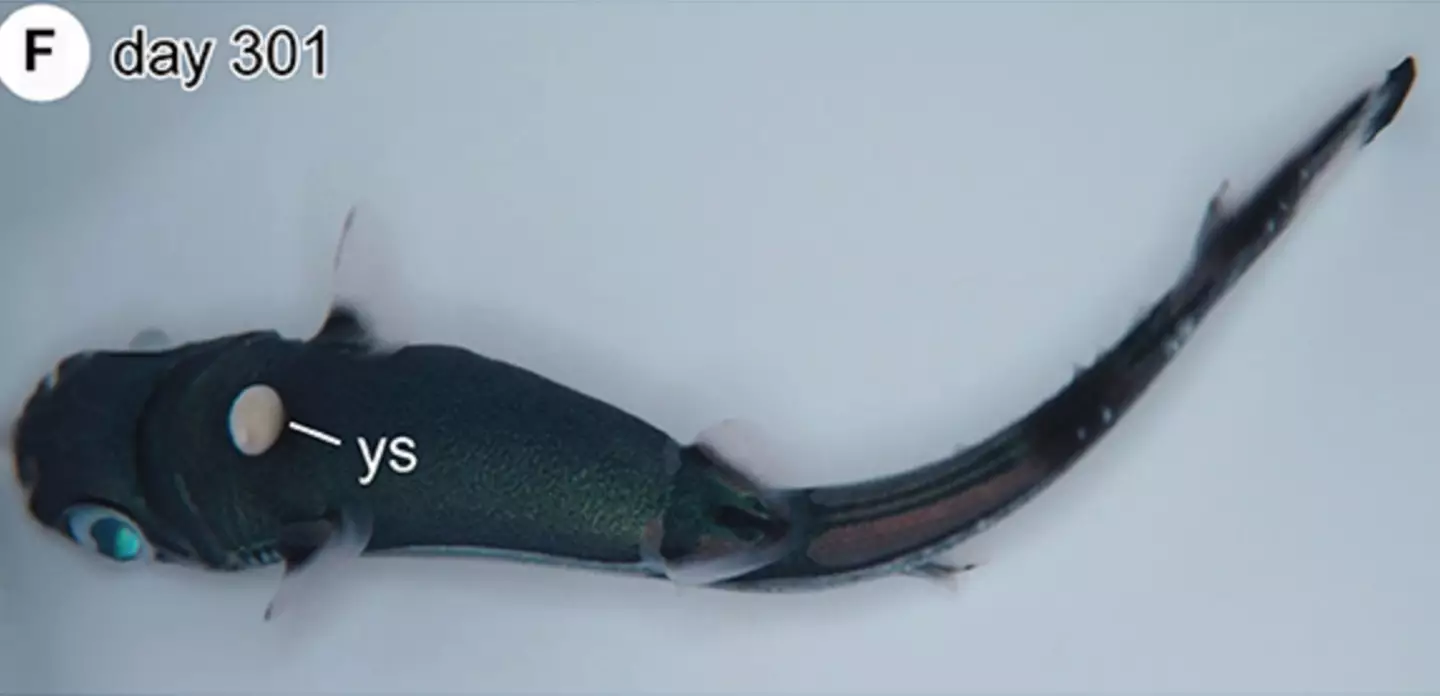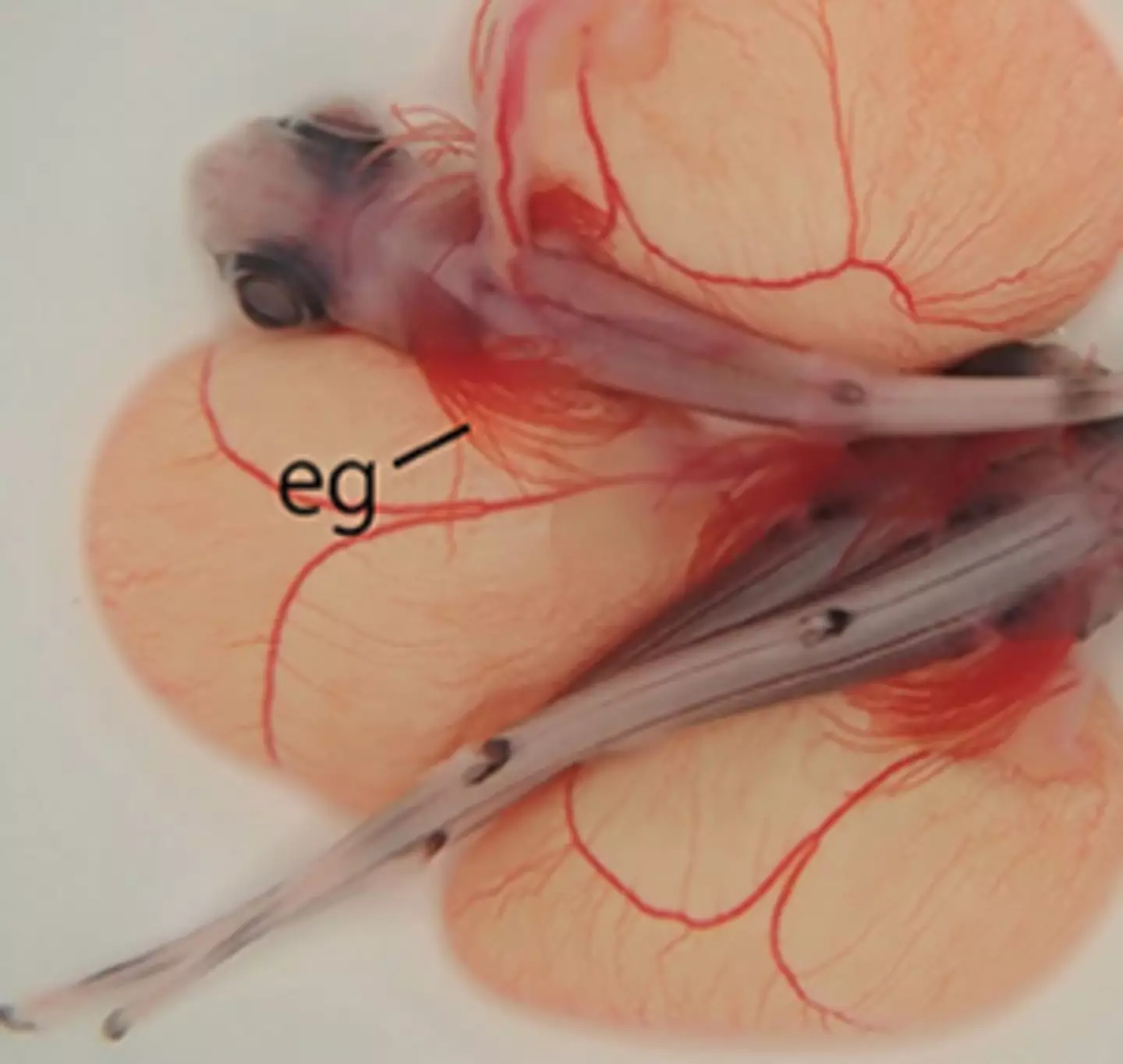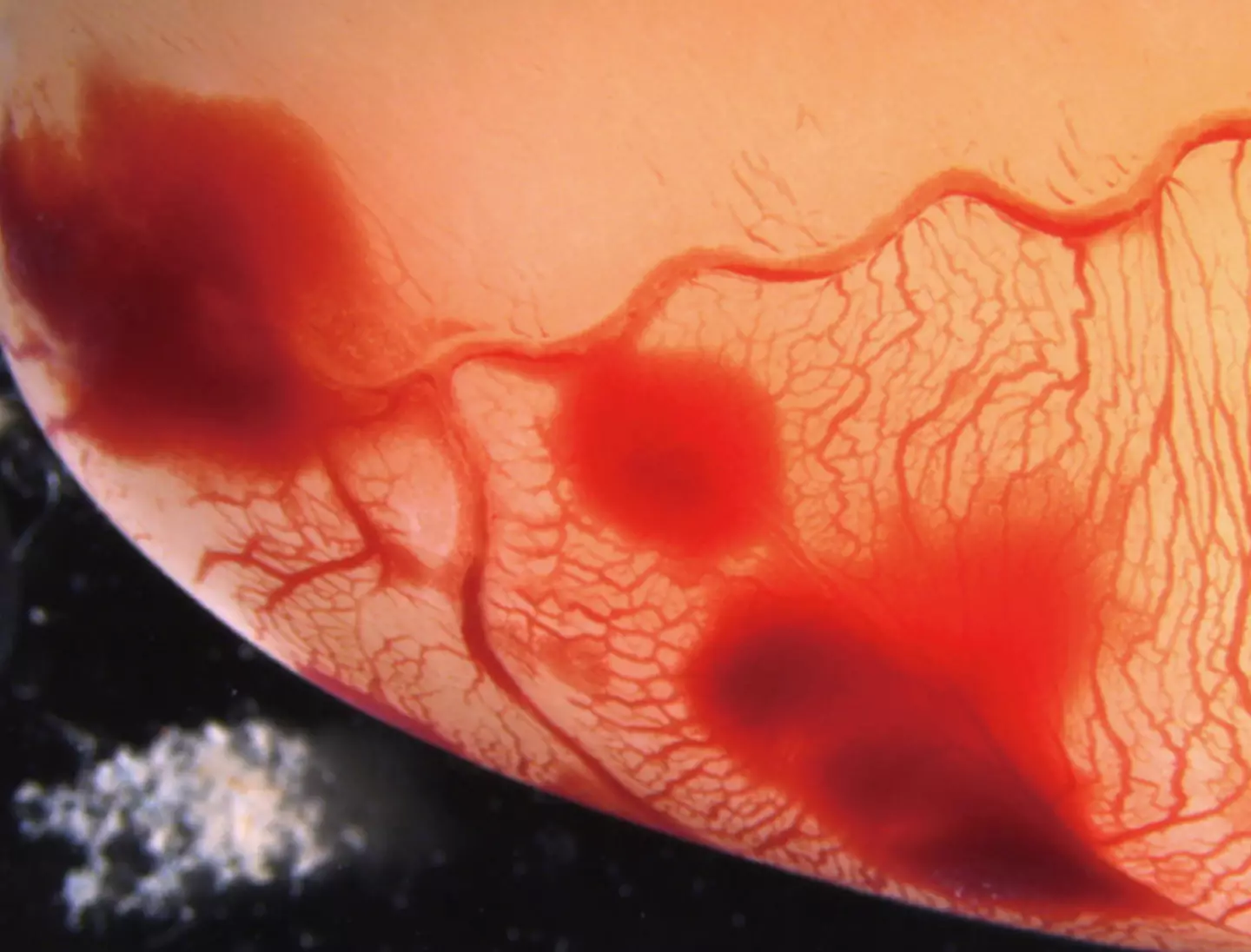.png)
Have you ever wondered what it would look like to peer into a womb and see a baby being created?
Well, you can’t do that with humans just yet, but it appears you certainly can with a shark!
Thanks to scientists in Japan, there is documented footage of baby sharks being created in an artificial womb.
Not only can they incubate prematurely delivered sharks embryos, but also keep them alive and growing until they’re ready to be born.
Advert
The researchers as the Okinawa Churaumi Aquarium in Motobu decided to create the system which can incubate slendertail lantern shark embryos for nearly a year (355 days) which beats the previous record of 160 days of incubation.

Now, the artificial system allows mid-term embryos to grow from three to 15 centimetres which is the size they are generally born at.
The amazing technology helps premature sharks that a born into sea water that’s too salty for their bodies, allowing them to be protected until they are ready.
It’s especially important for sharks that give birth to live young who have no outer shell to block out the salt.
To combat this issue, the scientists came up with a way to develop an artificial uterine fluid that contains a similar osmotic pressure and salinity shark blood plasma.
It also changes its chemical composition of the fluid to match that of a shark’s womb as it progresses through pregnancy.
The trial was a success, but most of the embryos didn’t reach birth size.

It’s reported that only three out of 33 made it and behaved like ‘normal’ baby sharks upon their release. They even enjoyed a snack of minced shrimp and mackerel.
Haiku Magazine reported that the sharks, who are now adults, are healthy and living in the Okinawa Churaumi Aquarium.
Taketeru Tomita, the lead study author and a researcher at Okinawa Churashima Foundation, told the mag: “In our aquarium, as in the outside world for conservation, we cannot select the species we receive.
"The reproductive systems of sharks have great diversity, and I think our system can only apply to about half of viviparous sharks. We would like to develop more universal systems.”
But that’s not the only work that’s being put into artificial wombs.

Toronto’s Hospital for Sick Children are in the works of creating a womb for premature human babies and are trialling using pigs first.
NPR followed the team as they attempted it on a pregnant pig, moving the foetus to the artificial womb.
Dr Christoph Haller said while in the room of the operation: "The ultimate goal of today is to transition a foetus onto that artificial womb.
"We're transitioning it into an artificial environment that allows the fetus to still maintain its regular physiology.”
He added: "We're basically trying to find a new concept on how to preserve fetuses to allow them to mature more physiologically compared to the regular preterm. That would be the target - to treat extreme premature babies. This would hopefully be a big deal - a game changer."
Topics: Health, Science, Technology, Sharks, Animals
